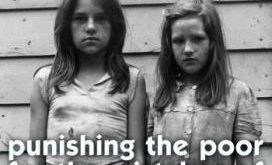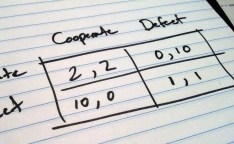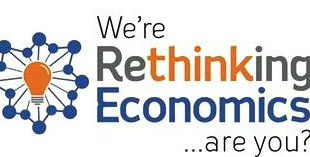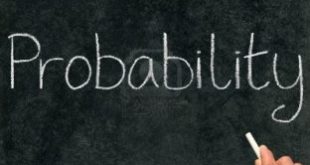Why the euro has to be abandoned The euro has taken away the possibility for national governments to manage their economies in a meaningful way — and in Italy and Greece a couple of years ago, the people had to pay the true costs of its concomitant misguided austerity policies. The unfolding of the repeated economic crises in Euroland during the last decade has shown beyond any doubt that the euro is not only an economic project but just as much a...
Read More »Coase theorem
In mainstream economic theory, institutions were long taken for granted. As the far-reaching consequences of institutional assumptions have become increasingly difficult to ignore, economists have, in recent times, made greater efforts to incorporate institutions into their models. This renewed interest in broadening economic theory to encompass economic and political institutions has centred on the analysis of property rights and transaction costs. Ronald Coase’s work has...
Read More »All Along The Watchtower
All Along The Watchtower .[embedded content] In loving memory of my older brother Peter Pålsson (1955-2001), a big Jimi Hendrix fan. But in dreams, I can hear your name. And in dreams, We will meet again. When the seas and mountains fall And we come to end of days, In the dark I hear a call Calling me there I will go there And back again.
Read More »The current state of game theory
The current state of game theory One of the most widespread myths in economics, but also in sociology and political science, is that game theory provides “tools” that can help solve concrete problems in these branches – especially in economics. Introductory and advanced textbooks thus often speak of the “applications” of game theory that are being made, giving the impression that they are revolutionizing the social sciences. But, looking more closely, we...
Read More »On the importance of history and methodology
On the importance of history and methodology Nowadays there is almost no place whatsoever in economics education for courses in the history of economic thought and economic methodology. The standard view among mainstream economists is that students shouldn’t think about what they are doing, but just do it. This is deeply worrying. A science that doesn’t self-reflect and asks important methodological and science-theoretical questions about its own activity,...
Read More »Hegel
.[embedded content]
Read More »Adorno/Horkheimer and the dialectic of enlightenment
Adorno/Horkheimer and the dialectic of enlightenment .[embedded content]
Read More »Dian Fossey (personal)
.[embedded content] ‘Dian Fossey’ handlar om hur Annika Norlin föder barn. Alla som varit med om undret när ens barn kommer till världen känner nog igen sig. Det är den sorts upplevelse som glömskan aldrig rår på. Tack min son för att du tipsade mig om den här underbara låten!
Read More »Economics education needs a revolution
Economics education needs a revolution You ask me what all idiosyncrasy is in philosophers? … For instance their lack of the historical sense, their hatred even of the idea of Becoming, their Egyptianism. They imagine that they do honour to a thing by divorcing it from history sub specie æterni—when they make a mummy of it. Friedrich Nietzsche Nowadays there is almost no place whatsoever in economics education for courses in the history of economic...
Read More »Economics and probability
Modern mainstream (neoclassical) economics relies to a large degree on the notion of probability. To be amenable to applied economic analysis, economic observations allegedly have to be conceived as random events that are analyzable within a probabilistic framework. But is it really necessary to model the economic system as a system where randomness can only be analyzed and understood when based on an a priori notion of probability? When attempting to convince us of the...
Read More » Lars P. Syll
Lars P. Syll







